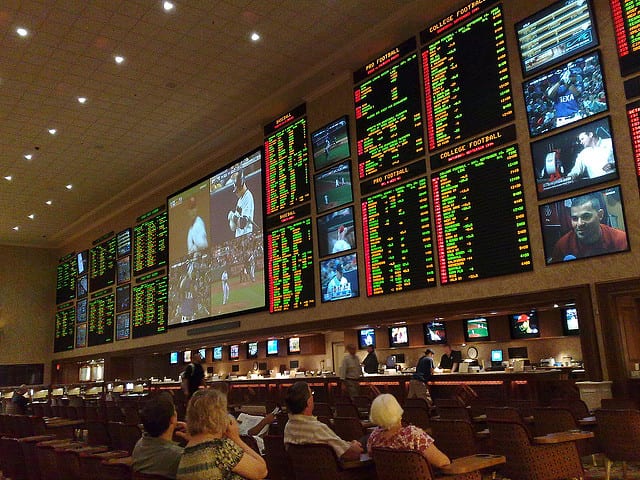Rhode Island to launch sports betting next week

Twin River Casino will be the first gambling facility to accept legal bets in Rhode Island when the US state’s regulated market launches next week.
Speaker of the House Nicholas Mattiello, Senate President Dominic Ruggerio and John Taylor, Jr, executive chairman of the casino's parent company Twin River Worldwide Holdings, will place the first bets at the Lincoln casino on Monday November 26.
Rhode Island legalised sports betting in June, just weeks after the Supreme Court moved to overturn PASPA.
“Sports gaming provides the state with revenue that offsets reliance on taxes to support essential state services, such as education and fixing roads and bridges,” Ruggerio said of upcoming launch.
The state had hoped to go live with a legal service on October 1, but this was delayed due to overunning talks with IGT and William Hill, which signed an agreement with the Rhode Island Lottery in August to manage sports betting services in the state.
IGT and William Hill will supply end-to-end sports betting services at the Twin River Casino and Tiverton Casino, the state’s only licensed video lottery and table game establishments. Twin River plans to launch sports betting at the Tiverton Casino facility next month.
Rhode Island has set a 51% gross revenue tax for regulated sports betting in the state, with the vendor to receive 32% of revenue, and the casino the remaining 17%.
Based on an October 1 launch, the state budget included an estimated $32.5m (£25.2m/€28.5m) in revenue from sports betting through to June 30 next year. However, due to the late launch, analysts have since suggested Rhode Island will now raise in the region of $12m.
Meanwhile, lawmakers in Virginia are considering a new bill that would repeal prohibitions against online sports betting and lottery ticket sales
Pre-filed onto the 2019 calendar by Delegate Mark Sickles, House Bill 1638 defines an approved platform as a “website, app, or other platform accessible via the internet or mobile, wireless, or similar communications technology that sports bettors use to place sports bets”.
Should the bill become law, it would open up legal betting on all professional and collegiate sports, with the exception of events involving schools in Virginia.
Five permits would be made available to operators at a cost of $250,000 each, while the state would take 15% in taxes from revenue. The lottery would retain 2.5% of this as an arranged administration fee.
Image: Marit & Toomas Hinnosaar
